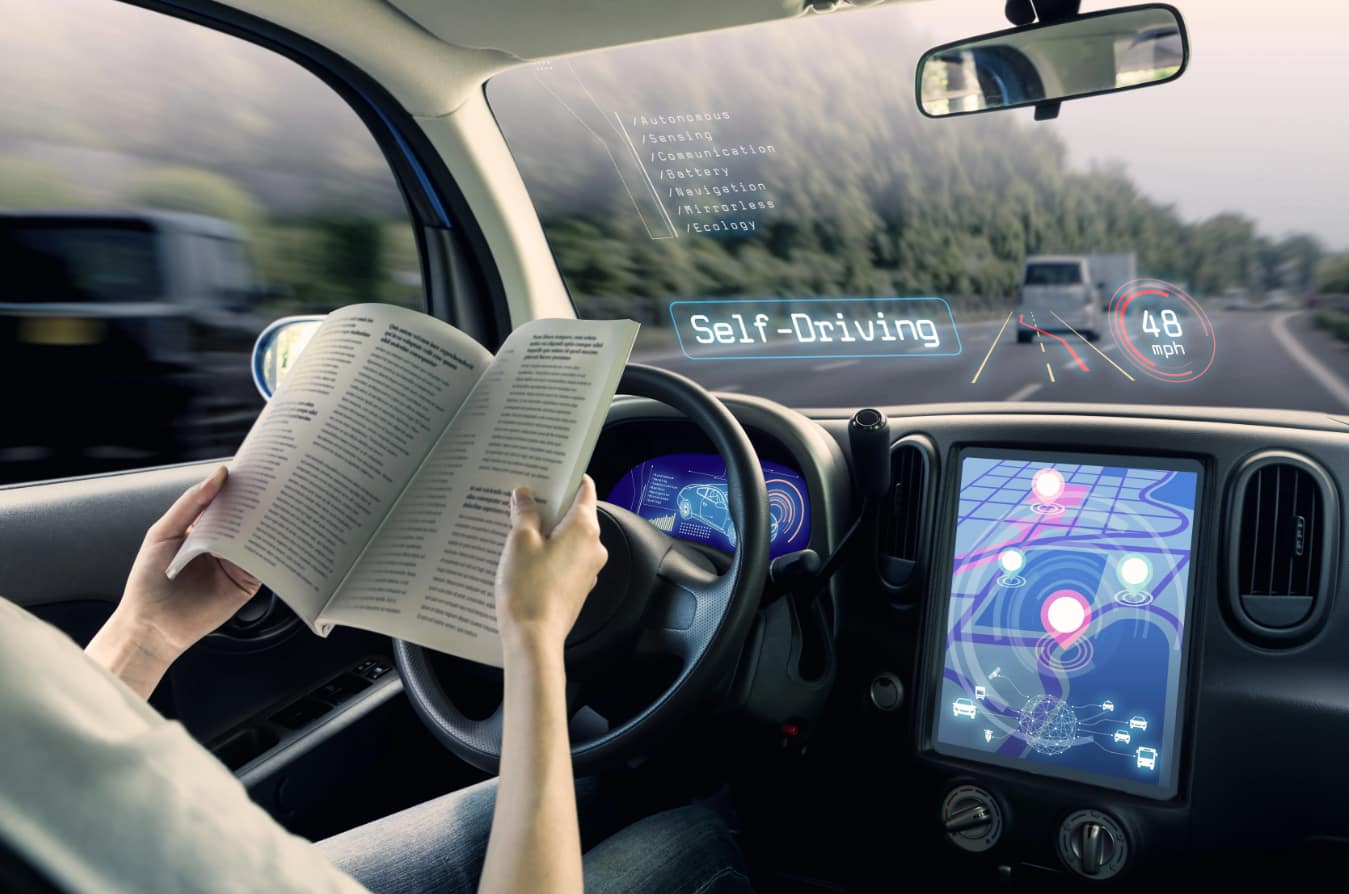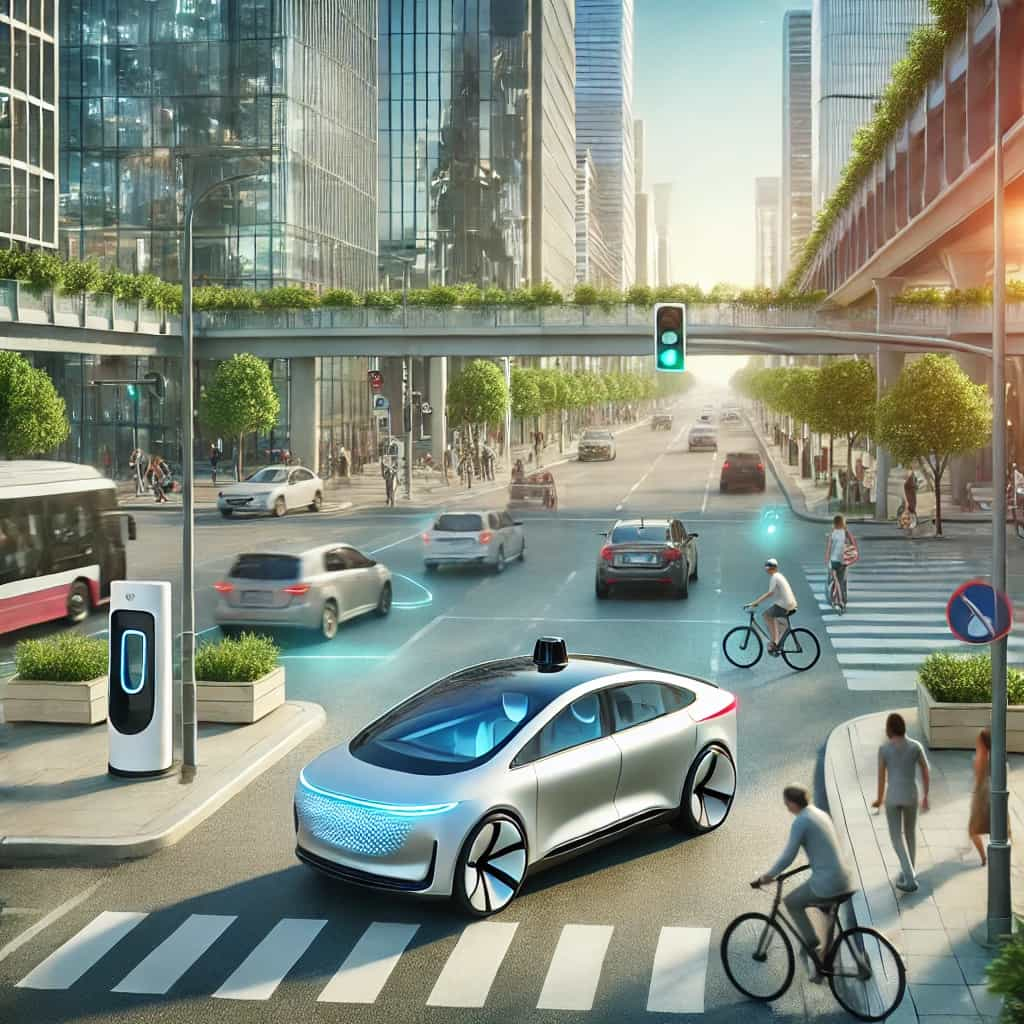Alright, self-driving cars aren’t just some wild idea from a sci-fi flick anymore. They’re out there, actually driving around—like your average car, but learning and improving every day.
The promise? A simpler, safer life that might also be easier on the environment. But, as with most shiny new tech, they bring along their own set of quirks and challenges.
So, here’s the thing: are these autonomous rides really as good as they seem? Or is there something about them that, you know, doesn’t sit quite right? Let’s dig in and figure out whether this whole driverless future is something to cheer for—or maybe approach with, let’s say, a bit of caution.

Safer Streets? Well, That’s the Hope Anyway
The Good: Fewer Oops Moments
You know how human drivers can be, right? Always looking at their phones, zoning out, or, worse, driving after a few too many drinks. Well, self-driving cars? They don’t do any of that nonsense. They’re programmed to stick to the rules all the time. No running red lights, no texting while “driving,” no nodding off on a long trip.
Imagine this: roads where accidents are, well, kind of rare. It’s not just wishful thinking; these cars are designed to cut out human error, which causes most crashes. If that doesn’t make you breathe a little easier, what will?
The Not-So-Good: Glitches Happen
Still, let’s not get too excited just yet. These cars, they’re smart, sure, but they’re not perfect. A bit of bad weather? A kid darting out onto the street? Sure, they can get confused. And glitches, those sneaky little tech hiccups, could turn a harmless drive into a dicey situation.
So, while they’re aimed at making roads safer, let’s not pretend we’re at “sit back, relax, and snooze” levels just yet.
The Takeaway?
Alright, these cars could seriously clean up our driving game, but for now, they’re still learning. Don’t throw away your driver’s license just yet.
More Freedom or More Worry? That’s the Question
The Perks: A Helping Hand for Those Who Need It
Now, here’s where it gets interesting. Think about folks who can’t drive—whether it’s age, a disability, or something else. A car that drives itself? That’s independence, plain and simple. No more waiting for a bus or asking family for rides. It’s kind of a big deal, don’t you think?
And for everyone else, there’s the joy of handing over the wheel on a long commute. Like, picture yourself binge-watching your favorite show while your car takes care of the road. Sounds pretty sweet, huh?
The Catch: Who’s Watching Who?
But hang on a sec. These cars? They’re like little spies on wheels, gathering all kinds of info—where you go, how often, and even your driving habits. Some folks are asking: who’s keeping tabs on all that data, and are they doing it responsibly?
And let’s not forget hackers. It’s a bit unsettling to think someone might, you know, hijack your car’s controls from miles away. Scary, but not impossible.
The Takeaway?
Driverless cars could be a real game-changer for mobility, but the whole “Big Brother is watching” vibe? Yeah, we’ve got some trust issues to work through first.
Greener Rides or Just Flashy Gadgets?
The Bright Side: Smoother Traffic, Cleaner Air
Self-driving cars are all about efficiency. They can figure out the best routes, avoid traffic jams, and keep things moving. And if they’re electric, you’re talking way fewer emissions. Add in some fancy features, like driving super close together to save fuel, and you’ve got a recipe for a greener planet.
It’s like having a car that’s always trying to do better, you know?
The Downside: Power-Hungry Gizmos
But here’s the rub—those sensors and cameras? They’re basically energy hogs. And if the electricity powering your car comes from, let’s say, coal, it’s not as eco-friendly as it sounds. Plus, there’s the whole issue of cars driving empty, like after dropping you off somewhere. Double the trips, double the energy, right?
The Takeaway?
Sure, self-driving cars could help the environment, but only if we get serious about clean energy and smarter ways to use them.

The Winners and the “Uh-Oh” Crowd
The Good News: Rethinking Cities
Here’s a cool thought: fewer cars on the road. Families might not need more than one car if it can do all the work. And that means fewer parking lots, more green spaces, and less gridlock. Win-win, right?
Plus, driverless ride-shares could cut down on car ownership altogether. Think of it as your personal chauffeur service, minus the actual person.
The Bad News: Job Jitters and Legal Headaches
But what about truck drivers, cabbies, and delivery workers? Jobs like these could take a big hit, and that’s a problem.
And if something goes wrong—like, say, a fender bender—who’s to blame? The person in the car? The company that made it? Or the folks who coded the software? These are sticky questions that don’t have clear answers yet.
The Takeaway?
Driverless cars might just shake up the way we live in cities, but we’ve got to think about the people and jobs caught in the crossfire.
| Feature | Advantages | Disadvantages |
|---|---|---|
| Safety | – Reduces accidents by eliminating human errors. – Always follows traffic rules. |
– Struggles in bad weather or unexpected situations. – Potential for technical glitches. |
| Convenience | – Accessibility for those unable to drive. – Reduces stress on long commutes. |
– Privacy concerns: data collection. – Risk of hacking and system control loss. |
| Environment | – Optimizes traffic flow. – Potentially reduces emissions with electric cars. |
– High energy consumption from sensors and systems. – Empty trips increase energy use. |
| Urban Living | – Fewer cars → less parking and congestion. – Potential for more green spaces. |
– Job losses in driving-related industries. – Legal uncertainty around liability. |
| Overall Impression | – Promises improved quality of life. – Innovative and eco-friendly potential. |
– Technology is not yet perfect. – Raises complex social and ethical questions. |
So, Where Are We Heading?
Here’s the thing: driverless cars are, well, kind of amazing. They’ve got the potential to make roads safer, life easier, and the planet a little cleaner. But, they’re not a magic wand. Privacy worries, energy use, and job impacts are big questions that still need answers.
If you’re thinking about hitching a ride on this trend, just keep the pros and cons in mind. It’s a wild road ahead, and we’re all figuring it out as we go. For now, maybe stick to driving yourself—or let a very human driver take the wheel.





